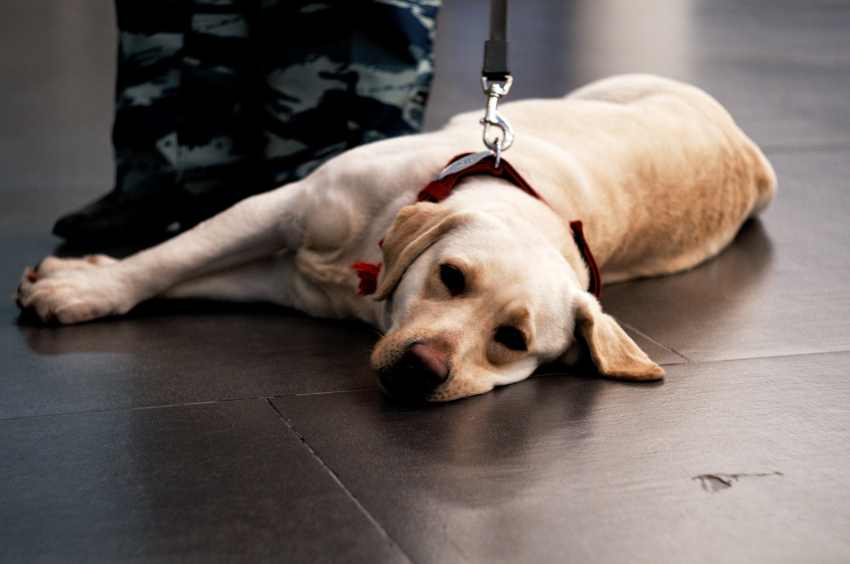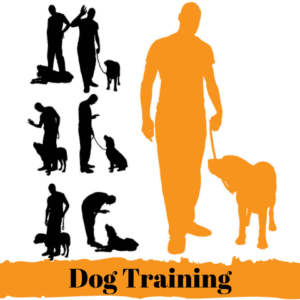Retiring a service dog is a significant transition for the dog and their handler. These dedicated companions have spent years providing invaluable assistance and support, and transitioning to life as a pet requires careful consideration and support.
In this detailed guide, we’ll explore expert tips and strategies to help your retired service dog adjust to their new home and embrace their well-deserved retirement with comfort and contentment.

Understanding the Transition:
Retiring a service dog involves more than just changing their living environment. These dogs have formed deep bonds with their handlers and are accustomed to a structured routine and specific tasks. Transitioning to life as a pet requires patience, understanding, and support as they navigate this significant change.
1. Create a Familiar Environment:
Before bringing your retired service dog home, create a familiar environment by incorporating items from their previous living and working spaces. This could include their bed, favorite toys, and even scent cues that remind them of their handler and previous routine.
2. Establish a Consistent Routine:
Service dogs thrive on routine, so establish a consistent daily schedule that mirrors their previous routine as much as possible. This includes meal times, potty breaks, exercise, and relaxation periods. Consistency provides comfort and stability during the transition period.
3. Allow Decompression Time:
Retiring from service work can be emotionally and mentally taxing for dogs, so allow your retired service dog plenty of time to decompress and adjust to their new surroundings. Limit exposure to new stimuli and gradually introduce them to their new environment at a pace that feels comfortable for them.
4. Provide Mental Stimulation:
Service dogs are used to mentally stimulating tasks, so provide enrichment activities to keep their minds engaged and active. This could include puzzle toys, fun and mental stimulation training sessions, and interactive games that tap into their training skills.
As an Amazon Associate, I earn from qualifying purchases. When you purchase products through the links on this page, I may earn a small commission at no extra cost to you.
5. Offer Gentle Exercise:
While retired service dogs may not have the same physical demands as when working, regular, low-impact exercise is still important for their physical and mental well-being. Take leisurely walks, engage in light play sessions, or try gentle activities like swimming to keep them active and healthy.
6. Be Patient and Understanding:
Transitioning to life as a pet can be challenging for retired service dogs, so be patient and understanding as they adapt to their new role. Allow them time to adjust to their new routine and provide plenty of reassurance, love, and positive reinforcement along the way.
7. Foster Bonding Time:
Building a strong bond with your retired service dog is crucial for their emotional well-being and overall happiness. Spend quality time together, engage in activities they enjoy, and offer plenty of affection to strengthen your connection and reassure them of their value as a beloved companion.
8. Consider Their Unique Needs:
Retired service dogs may have unique needs based on their age, health status, and previous working experiences. Be mindful of any physical or emotional challenges they may face, and consult with your veterinarian to address any concerns and provide appropriate care.
9. Seek Professional Support if Needed:
If you encounter challenges during the transition process, don’t hesitate to seek support from a professional dog trainer or behaviorist experienced in working with retired service dogs. They can provide personalized guidance and support to help your dog adjust and thrive in their new home.
Conclusion: Helping Your Retired Service Dog Adjust to Their New Home
Helping your retired service dog adjust to their new home and embrace retirement requires patience, understanding, and compassion. By following these expert tips and strategies, you can ensure a smooth transition for your loyal companion and provide them with the love, comfort, and companionship they deserve in their retirement years.
